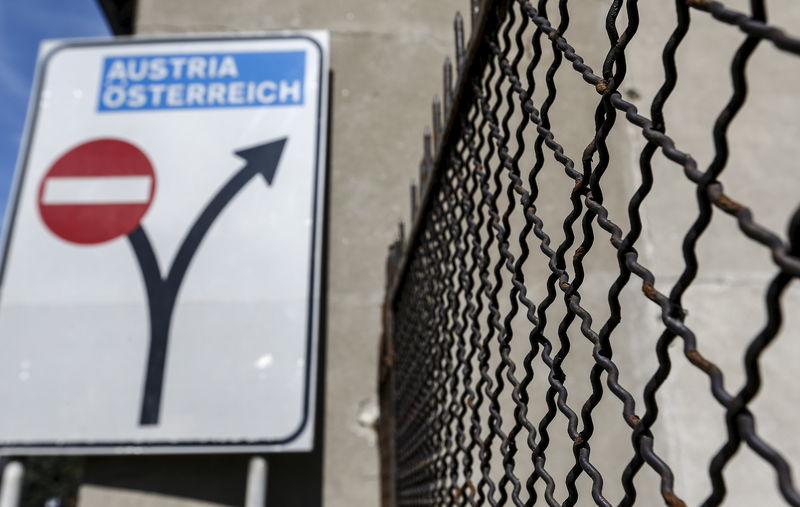By Francois Murphy
BOLZANO, Italy (Reuters) - Almost a century after World War One's victors made it part of Italy, the mainly German-speaking province of Alto Adige, or South Tyrol, is bracing for controls at what some still call the "unjust border" separating it from Austria.
People in this picturesque part of the Alps, many of whom want an ever closer union with Austrian Tyrol, are used to crossing into Austria unhindered to shop, work and study, thanks the Schengen agreement on open borders in the European Union.
But, with hundreds of thousands of migrants expected to cross the Mediterranean to Italy from Africa in the coming months, Austria has said it will introduce border checks at the busy Brenner Pass if the northward flow of people requires it.
"We have to be realistic. When you see that they're carrying out building work, they're going to carry out controls," said Alfred Aberer, the head of the chamber of commerce in Bolzano, the Italian province's capital.
Work began this week on building facilities to manage crowds and inspect vehicles at Brenner, the busiest route through the Alps. The controls, if introduced, will slow traffic on Italy's main transport link to Germany, its top trading partner.
Rome has condemned the preparations and the European Commission has expressed concern. In the province itself, there is apprehension and much uncertainty, but little sense that it could become the next flashpoint in Europe's migration crisis.
"It is too early to say what scenarios can develop," South Tyrol's Governor Arno Kompatscher told Reuters after a news conference conducted, like all government business here, in Italian and German.
Much will depend on whether Italy lets the migrants landing in the south travel toward Germany. That, in turn, depends on whether the EU can arrange for them to be taken back to countries like Libya or be redistributed within the bloc.
"We are preparing what we, as the little province of South Tyrol can manage, and continue to insist on there being a common European solution," Kompatscher said, emphasizing how sensitive an issue the border here is.
"Brenner is of enormous political significance to us," he said, adding at the news conference: "The Brenner pass is a symbol of Europe's unification ... and, for us especially, the reunification of the historic Tyrol region."
For now, few migrants are crossing into Italy, and those who are generally take the train, which also runs through Brenner in a steep, narrow valley, the provincial government's head of social affairs, Luca Critelli, told Reuters.
"At the moment it is relatively quiet," he said. He and Kompatscher said the province could only accommodate a backlog of migrants in the hundreds.
MUCH ADO ABOUT TRUCKING
Economically, the repercussions of controls could be significant. The province of 500,000 people hosts around six million tourists a year, and Germans are the biggest group, according to a provincial trade group for hoteliers, HGV.
"There are of course concerns, fears in the hotel and restaurant industry, that is clear," Aberer, the chamber of commerce chief, said. "There would be delays and we think that because of those delays people could be scared off of coming on holiday."
A one percent drop in annual tourist arrivals would cost the industry 30 million to 35 million euros ($33.8 million to $39.5 million), he said. Around 10 million cars and two million trucks pass through Brenner a year.
But not everyone believes the measures will have severe consequences. Austria has pledged to keep the disruption to traffic to a minimum, and it might be trying to prod countries like Italy into taking action.
"Honestly, I think there's a lot of sabre-rattling in this," Thomas Baumgartner, the owner and chief executive of Fercam, a Bolzano-based logistics company, said at his company's offices, despite having potentially much to lose.
His firm, Italy's biggest trucking company, makes roughly 200,000 deliveries by truck each year, half of which go through Brenner.
"I am confident Austria is doing this so that the EU secures the external border, to put pressure on the EU," he said.
Some, however, are less optimistic.
"For us, it would be a bit of a catastrophe," said Arnold Huber, a goatherd selling cheese, yoghurt and sausages at a market in the old town of Bolzano, known in German as Bozen. "We need tourism here. If we don't have tourism, there's nothing."
